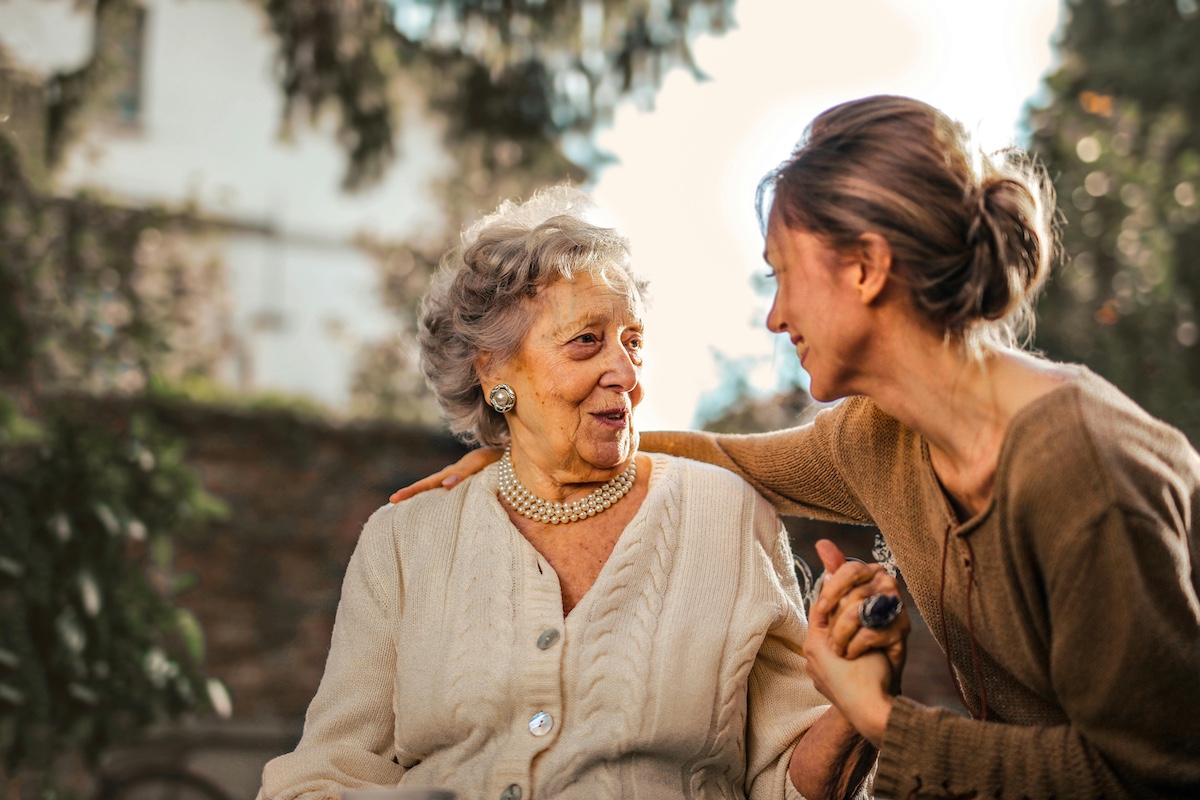As the days grow shorter and sunlight becomes scarce, many seniors experience emotional changes. The colder months often bring feelings of sadness, isolation, and even depression, commonly referred to as seasonal affective disorder (SAD).
Supporting seniors’ emotional well-being during this period is essential for maintaining their overall health and quality of life.
By fostering a positive environment, addressing mental health needs, and encouraging social connection, caregivers and loved ones can make a significant difference.
Understanding the Emotional Impact of Shorter Days
Shorter days and reduced sunlight can have a profound effect on emotional health, particularly in seniors. Some of the common challenges include:
Seasonal Affective Disorder (SAD)
SAD is a type of depression triggered by changes in seasons. For seniors, it may present as fatigue, sadness, loss of interest in activities, and changes in sleep or appetite.
Increased Feelings of Isolation
During the colder months, seniors may have fewer opportunities for outdoor activities and social gatherings, leading to feelings of loneliness and isolation.
Impact on Physical Health
Emotional well-being and physical health are interconnected. Seniors experiencing sadness or depression may neglect self-care routines, leading to other health concerns.
1. Encourage Social Connections
Social interactions are crucial for emotional well-being. Seniors who regularly connect with others are more likely to feel engaged and supported.
Facilitate Family Visits
Frequent visits from family members can provide a sense of connection and belonging. If in-person visits aren’t possible, encourage regular phone or video calls.
Promote Participation in Group Activities
Local senior centers often host activities like book clubs, exercise classes, or craft workshops. Encourage participation to foster a sense of community.
Explore Volunteer Opportunities
Helping others can boost self-esteem and provide purpose. Volunteering for causes they care about may offer seniors a renewed sense of fulfillment.
2. Create a Bright and Cheerful Environment
The lack of natural sunlight during shorter days can contribute to feelings of sadness. Brightening up the home environment can help improve mood.
Maximize Natural Light
Encourage seniors to spend time near windows or in sunlit areas of the home. Open curtains during the day to let in as much natural light as possible.
Use Light Therapy
Light therapy lamps that mimic natural sunlight can be an effective tool for combating SAD. Consult a healthcare provider before use to ensure it’s appropriate for their needs.
Add Cheerful Decor
Decorate the home with warm colors, family photos, or seasonal decorations to create a positive and welcoming atmosphere.
3. Support Physical Activity
Regular physical activity has a significant impact on emotional well-being. Exercise releases endorphins, which are natural mood lifters.
Encourage Outdoor Walks
Even during colder months, short walks outdoors can provide fresh air and exposure to natural light. Bundle up to ensure comfort and safety.
Suggest Indoor Exercises
Yoga, tai chi, or chair exercises are gentle options that improve flexibility, balance, and mood. Many online classes cater specifically to seniors.
Make Movement Enjoyable
Incorporate fun activities like dancing to favorite music or playing interactive video games that involve physical activity.
4. Address Mental Health Needs
Recognizing and addressing mental health challenges is vital for supporting emotional well-being.
Watch for Warning Signs
Be alert to symptoms of depression, such as persistent sadness, withdrawal from activities, or changes in eating and sleeping habits. If noticed, consult a healthcare professional.
Provide Emotional Support
Sometimes, simply being there to listen can make a big difference. Encourage open conversations about feelings and reassure them they are not alone.
Seek Professional Help
If needed, a counselor, therapist, or geriatric psychiatrist can provide guidance and support tailored to the senior’s needs.
5. Encourage Hobbies and Interests
Engaging in enjoyable activities can provide a sense of accomplishment and keep the mind active.
Revive Old Hobbies
Encourage seniors to revisit hobbies they once enjoyed, such as knitting, painting, gardening, or playing musical instruments.
Introduce New Interests
Learning something new can be exciting and stimulating. Consider introducing activities like puzzles, photography, or cooking classes.
Explore Creative Outlets
Creative expression, such as journaling, drawing, or scrapbooking, can help seniors process emotions and boost their mood.
6. Maintain a Healthy Routine
A consistent daily routine can provide structure and stability, reducing feelings of uncertainty or anxiety.
Regular Sleep Schedule
Encourage seniors to go to bed and wake up at the same time each day to regulate their internal clock and improve sleep quality.
Balanced Meals
Proper nutrition is essential for emotional health. Include foods rich in omega-3 fatty acids, vitamin D, and antioxidants to support brain health.
Daily Tasks
Assist with creating a daily schedule that includes time for self-care, exercise, and leisure activities.
7. Foster a Sense of Purpose
Feeling valued and purposeful can greatly enhance emotional well-being.
Involve Them in Decision-Making
Ask for their input on family matters or let them take part in planning meals, outings, or celebrations.
Encourage Storytelling
Seniors often enjoy sharing stories from their past. Listening to their experiences can make them feel appreciated and connected.
Set Goals
Help them set small, achievable goals, such as completing a book, finishing a puzzle, or walking a certain distance each week.
8. Emphasize Self-Care and Relaxation
Taking time to relax and focus on self-care can help reduce stress and promote emotional well-being.
Practice Mindfulness
Encourage mindfulness activities like meditation or deep breathing exercises, which can reduce anxiety and improve focus.
Pampering Sessions
Offer opportunities for relaxation, such as a warm bath, aromatherapy, or a gentle massage.
Spiritual Activities
For those who are spiritually inclined, attending religious services, reading scripture, or praying may provide comfort and peace.
9. Plan Special Activities
Having something to anticipate can brighten a senior’s outlook and provide motivation.
Seasonal Outings
Plan visits to local holiday markets, botanical gardens, or light displays. Ensure accessibility and comfort during outings.
Virtual Events
If attending events in person isn’t possible, explore virtual concerts, museum tours, or interactive online games.
Family Traditions
Organize family gatherings, whether in person or virtual, to celebrate holidays or milestones together.
Final Thoughts
As the days get shorter, seniors are more vulnerable to emotional challenges like isolation, sadness, and depression. With thoughtful support, seniors can navigate seasonal changes with resilience and maintain a positive outlook, ensuring their emotional well-being throughout the colder months.


